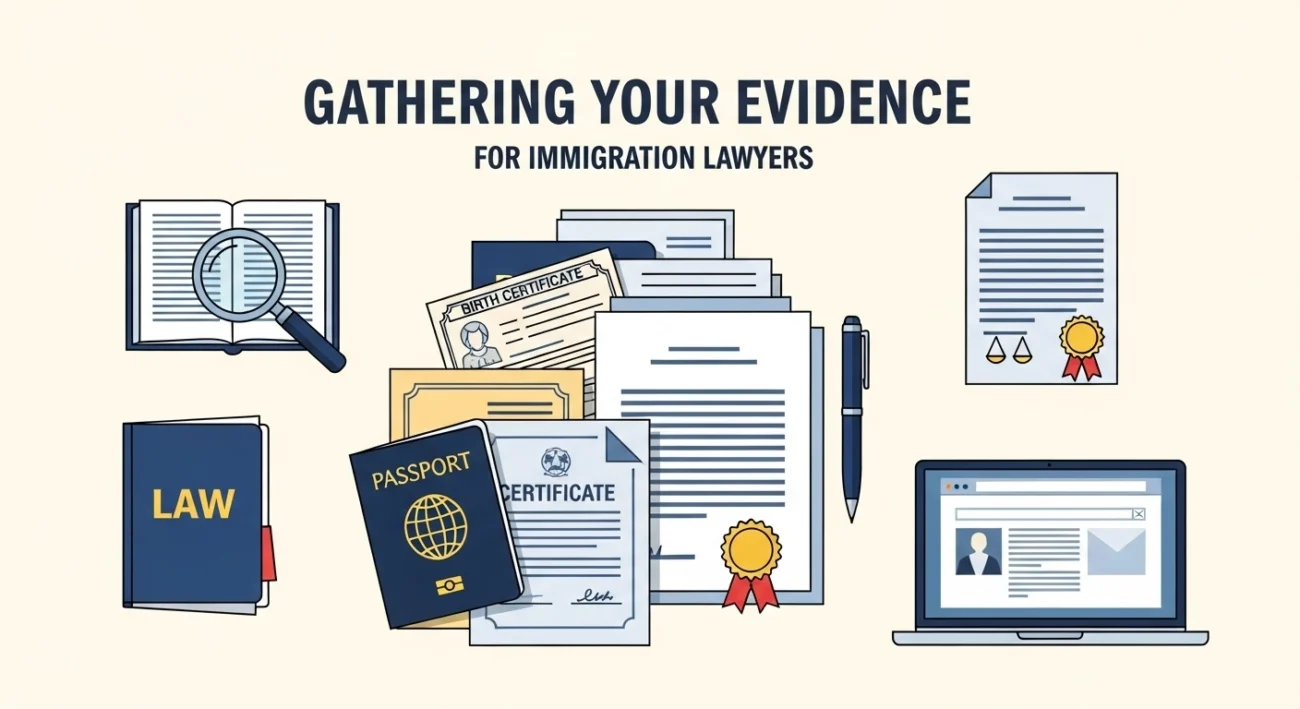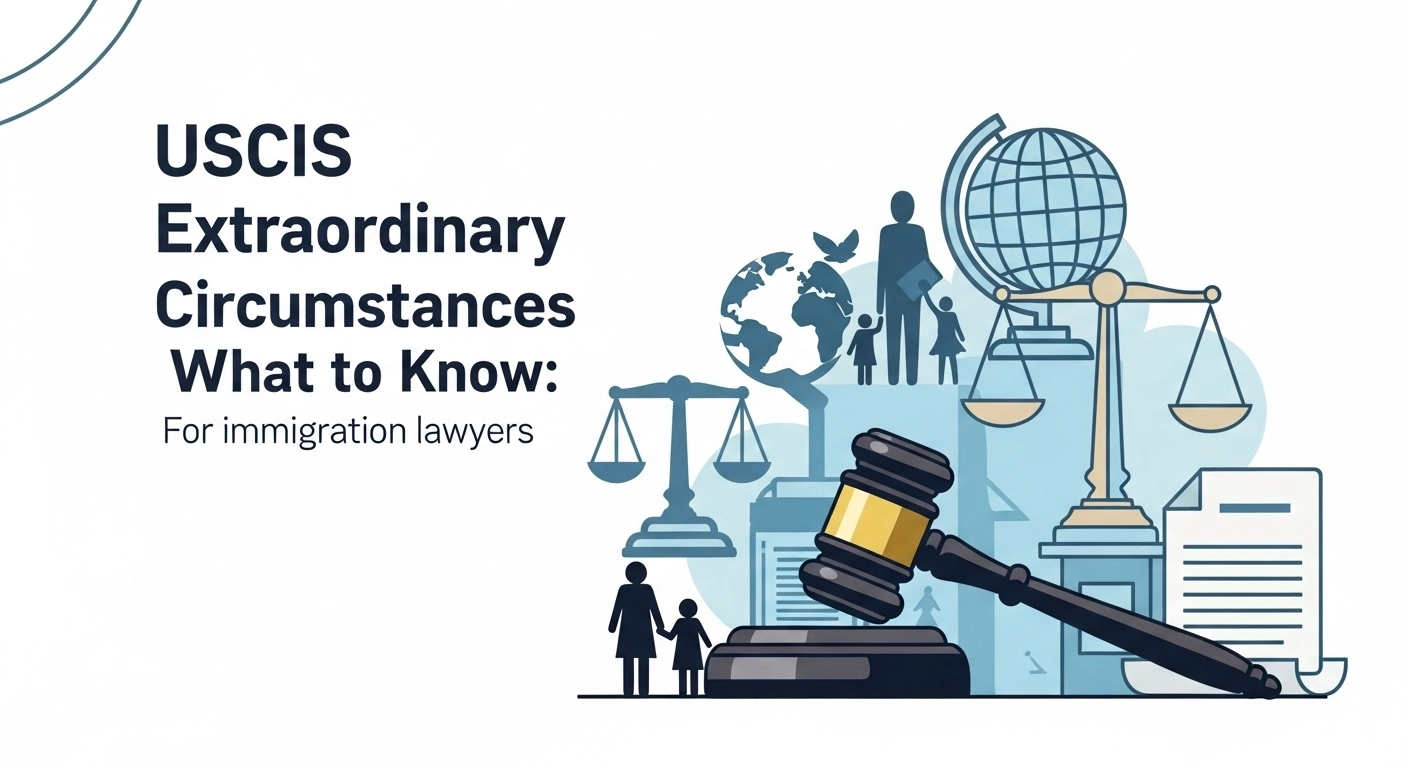There are few things that matter more, or are as stressful for nonimmigrants in the U.S., than remaining within the letter of the law. It’s the ticking clock of Form I-94, and you can feel like time is running out with a blown deadline on an Extension of Stay (EOS) or Change of Status (COS) application resulting in severe immigration consequences such as accruing unlawful presence. The U.S. Citizenship and Immigration Services (USCIS) late filing policy used to be notorious for its lack of forgiveness, with discretion playing a large role in whether the “extraordinary circumstances” exception would result in approval.
That all changed with a key policy update in January 2024. USCIS has now recognized and defined when it will be considered “extraordinary circumstances,” providing some much needed help to those who are subject to, through no fault of their own, last minute unavoidable delays. No longer will the situation be so dire for nonimmigrants who through no fault of their own have fallen out of status, and that certainty brings welcome consistency to the process.
The Golden Rule and the New Exception
The fundamental rule of U.S. immigration remains unchanged: file your EOS or COS application before your Form I-94 expires. If you fail to do so, USCIS will typically deny your application. However, the updated policy manual now states that USCIS may, at its discretion, excuse a late filing if the applicant can demonstrate the following five conditions:
- The delay was due to extraordinary circumstances beyond your control. This is the core of the new guidance and is where the specific examples provided by USCIS are most helpful.
- The length of the delay was reasonable given the circumstances. A short, unavoidable delay is more likely to be excused than a prolonged one.
- You have not otherwise violated your nonimmigrant status. This exception is not a workaround for other immigration violations.
- You remain a “bona fide” nonimmigrant. This means you still intend to follow the terms of your visa and do not have immigrant intent.
- You are not in removal proceedings. This exception is not available to those already facing deportation.
What Qualifies as “Extraordinary Circumstances”
The January 2024 update’s most valuable contribution is providing concrete examples of what USCIS will consider “extraordinary circumstances”. While the list is not exhaustive, it gives applicants a solid framework for building their case.
- Labor Disputes and Slowdowns: For employment based visas (like H-1B), delays caused by strikes, lockouts, or other labor disputes affecting an employer are now explicitly recognized.
- Government Funding Lapses: Delays in obtaining essential documents, such as a certified Labor Condition Application (LCA) or temporary labor certification, due to a government shutdown can be cited. This is a direct response to issues seen during past federal funding crises.
- Unforeseen Document Delays: If a critical document from a third party such as a doctor, academic institution, or previous employer was delayed and was not reasonably foreseeable, this may qualify.
- Medical Emergencies: A sudden, serious illness or medical emergency that prevents a timely filing is a clear example of an unforeseen, uncontrollable event.
- Natural Disasters: Being in a region affected by a severe natural disaster that disrupts mail service or access to essential services can be grounds for an exception.
Gathering Your Evidence: The Key to Success

Simply claiming an extraordinary circumstance isn’t enough. USCIS adjudicators will require robust, corroborating evidence to support your late filing. The burden of proof is on you, the applicant.
- For Medical Emergencies: You will need official medical records, doctor’s notes detailing the illness and its impact on your ability to file, and hospital bills.
- For Employer-Based Delays: Provide a letter from your HR department confirming the labor dispute or shutdown. For LCA delays, note the dates of the government shutdown that affected your application.
- For Postal or Courier Delays: Submit tracking information, delivery receipts, and any correspondence with the delivery service proving the delay was their responsibility.
- For Natural Disasters: Gather official news reports, FEMA declarations, or a letter from local authorities confirming the disaster in your area.
- For Third-Party Document Delays: Provide proof of your repeated and timely requests for the document, along with any correspondence explaining the third party’s delay.
The Process for Untimely Filings
The procedure for submitting a late EOS or COS application is similar to a standard filing, but with one critical addition the cover letter and evidence.
- Prepare Standard Forms: Complete the standard forms, such as Form I-539 for an extension or Form I-129 for a change of status.
- Draft a Detailed Cover Letter: Clearly state that you are requesting the application be considered under the “extraordinary circumstances” provision due to the late filing. Explain the reason for the delay and how it was beyond your control.
- Organize Your Evidence: Compile all corroborating evidence and organize it logically, ideally with a table of contents, to assist the adjudicator.
- Submit the Full Package: Send your complete application packet, including the forms, cover letter, and evidence, to USCIS using a trackable service.
Final Takeaway
The January 2024 USCIS policy update is a positive development that provides a clearer, fairer path for nonimmigrants facing unavoidable delays. However, it’s not a substitute for timely filing. If you find yourself in a situation that could lead to a late application, your best course of action is to act immediately. The “reasonableness” of the delay is a key factor in USCIS’s decision. If you are unsure whether your circumstances qualify or how to best document your case, consulting an experienced immigration attorney is highly recommended. By understanding the new criteria and meticulously gathering your evidence, you can significantly increase your chances of a successful outcome and protect your immigration status.

